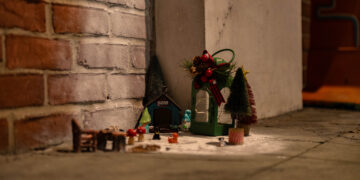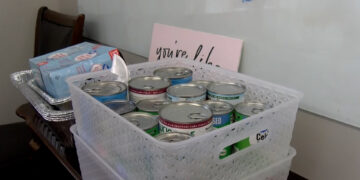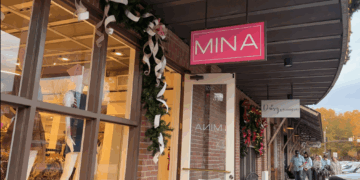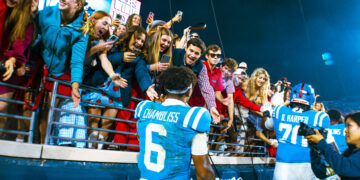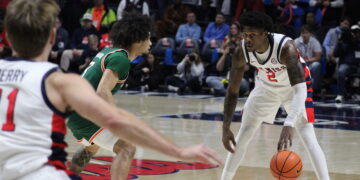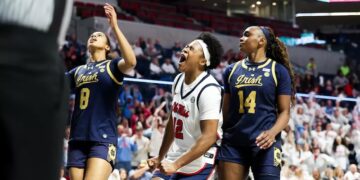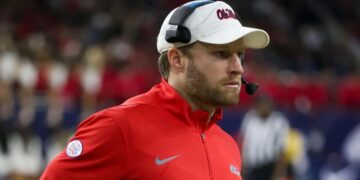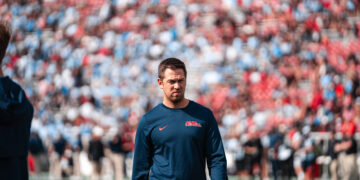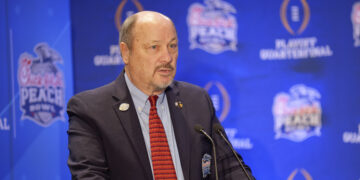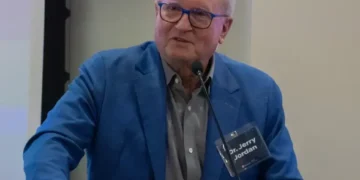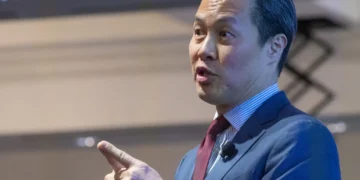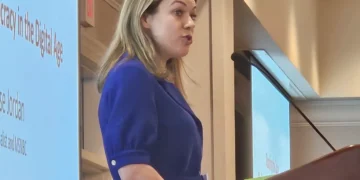The Overby Center for Southern Journalism and Politics announced the remaining Overby events on Feb. 28.
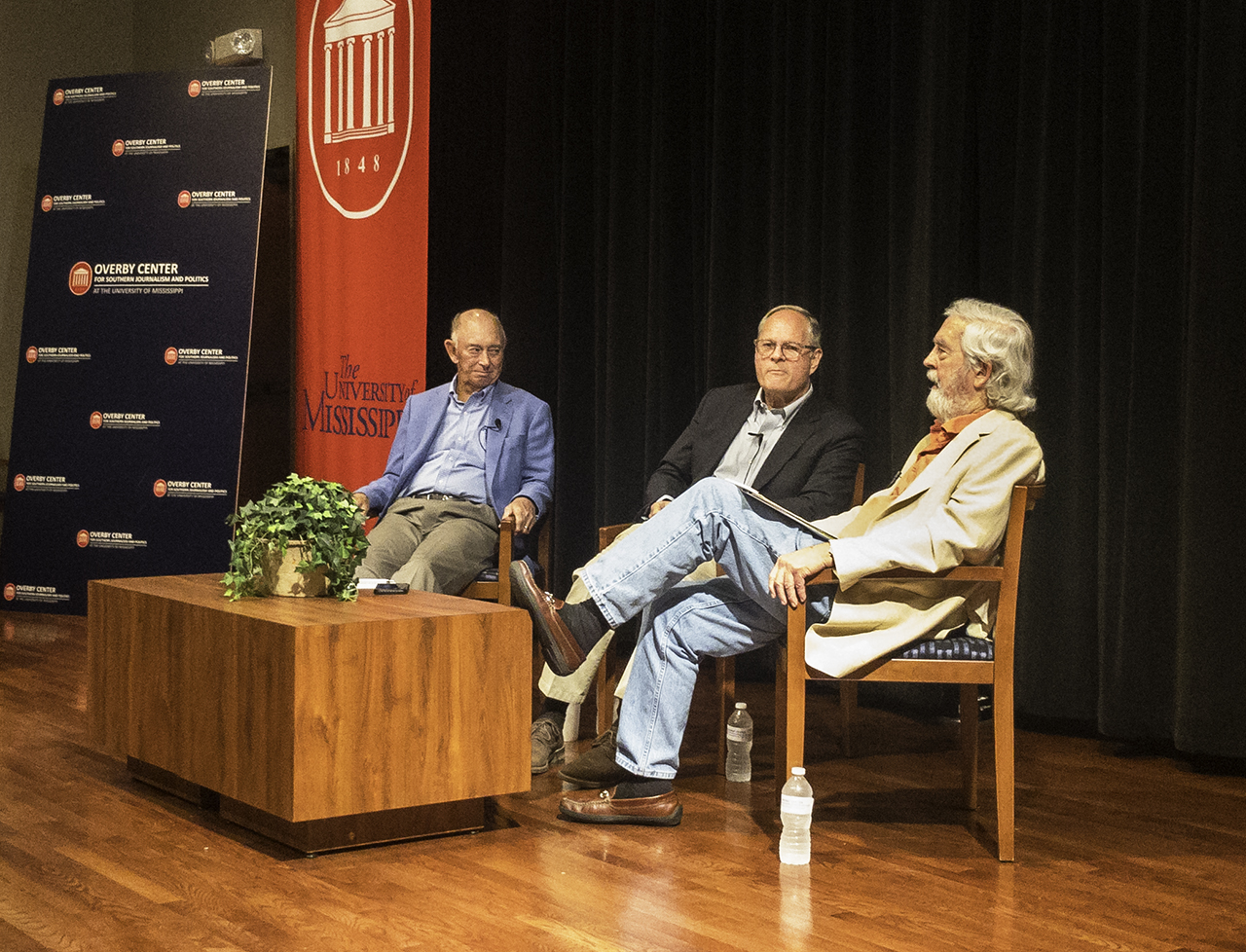
The lineup includes The Intersection of Critical Race Theory and Mississippi Civil Rights Education on March 9, Crisis Communication: Afghanistan and Beyond on March 28, 75 Years of Mississippi High School Journalism on March 29 and Separate and Sometimes Equal: Photos from Possum Town on April 11. Each event will begin at 5:30 p.m. in the Overby Center followed by a reception and open bar.
The Overby Center has hosted 150 events, 47 public debates and has welcomed 107 speakers. Events this semester will feature Overby fellows, Farley School of Journalism professors, Ole Miss alumni and other guest speakers.
The first event of the spring semester was held Tuesday, Feb. 22. The center held a shortened screening of the documentary “Unrivaled” followed by a discussion lead by founder Charles Overby and Athletic Director Keith Carter. The discussion also included the film’s directors David Crews and Norman Jetmundsen.
R.J. Morgan, Overby fellow and instructional associate journalism professor, said the event was a success.
“It went really well. We had a really great crowd and all of my students seemed to think it was pretty great,” Morgan said.
The first of the remaining events, The Intersection of Critical Race Theory and Mississippi Civil Rights Education, will be led by Overby fellow and visiting professor Randall Pinkston.
Growing up in a racially segregated school system in Jackson, Mississippi, Pinkston got a first-hand experience of what education without critical race theory looks like. In high school, he was distressed by the lack of Black history in his Mississippi history textbook, which he described as having “precious little information at all about Black people and no reference to civil rights.”
He said the textbook he used was still in circulation a few years after he graduated in 1968. Less than 50 years later, there is a movement to take critical race theory back out of public education.
Pinkston will discuss the potential impacts this bill could have on education in Mississippi. Robert Luckett will join Pinkston on his panel. Luckett is a history professor at Jackson State University and has children attending public school.
Pinkston said he feels a personal connection to this topic because of his experience.
“It was of interest to me that some people still don’t know or appreciate all of the facets of history that have made us the state that we were and are,” Pinkston said.
The next event, Crisis Communication: Afghanistan and Beyond, will be led by University of Mississippi alumna Melissa Charbonneau.
Charlie Mitchell, an associate professor of journalism who organized the event, taught Charbonneau when she attended the university in the ‘80s and has followed her career since. Charbonneau spent three years in Afghanistan working as communications advisor to the Afghan’s Women’s Project. She also worked on a security mission led by NATO.
Mitchell said he believes students can learn a lot from Charbonneau’s experience. He finds it important for students to get first-hand insight into different career paths in order to decide what they want to pursue.
“The attraction is not to put her on a pedestal and say, ‘Here’s this great person, all bow down,’ but to relate to her career,” Mitchell said.
For Mitchell, this belief extends to all Overby events.
“(The purpose of Overby events is) to allow our students to envision themselves following similar paths — or not. A big part of what you’re going through now is deciding what you’re not interested in,” Mitchell said.
Mitchell noted that the events can inspire students outside of journalism and integrated marketing communications. He said that, for example, ROTC students might be interested in Charbonneau’s talk.
The third event, 75 years of Mississippi High School Journalism, will be led by R.J. Morgan. Morgan joined the Mississippi Scholastic Press Association (MSPA) in the summer of 2013 and currently serves as director. Four of his predecessors will join him on the panel, including Beth Fitts, Robin Street and Charlie Mitchell. Mitchell, before becoming a professor at the university, served as MSPA director in the 1980s while attending graduate school.
“Between the four of us, we’ve got 40 years or so of the 75 covered, so it should be a good discussion,” Morgan said.
The panel will take place on the night before the 2022 MSPA state convention. Morgan said he hopes students arriving for the convention will be able to attend the panel as well.
Mitchell said they will also consider what the future of high school journalism looks like.
The fourth event, Separate and Sometimes Equal: Photos from Possum Town, will be led by University of Mississippi alumnus Berkley Hudson.
O.N. Pruitt, a photographer from Columbus, Mississippi, took over 88,000 photos of the town over a 40 year period starting in 1920. Hudson went through the negatives and pursued their stories.
Morgan described one of the stories. One photo shows an African American man and a mule standing in front of a house. There was no description accompanying the picture. Hudson was able to find the identity of the man. The photo was taken during the Depression. The house he is seen standing in front of was his own, and the government was foreclosing on it. The man called the White House repeatedly until he reached then-president Franklin Delano Roosevelt. They were able to make a deal to extend the man’s lease. The photo was taken for the local newspaper.
Hudson will tell more stories during his talk on April 11.
Morgan said Hudson’s examples show the role of journalists as “historians and documenters of time and place.”
Events are curated by founder Charles Overby and the Overby fellows. Along with Pinkston and Morgan, current fellows include Will Norton and Terry Mattingly.
According to Morgan, Overby plays the biggest role in selecting events. Every semester, he asks the fellows for potential event topics, which often focus on current events. Then, Overby asks for connections they may have to experts on those topics.
“Our programs are driven by subject matter and the special interests of our fellows and alumni. Many programs are chosen for their newsworthiness. Two examples of that this spring involve the topics of critical race theory and women in Afghanistan,” Overby said.
Morgan said Overby told him one of the main reasons for founding the center was to provide opportunities similar to his own during his time at the university.
“It was all of the outside speakers and all the extra stuff that really helped him in his education,” Morgan said, “so he wanted to create a way to give those same experiences to successive generations of students.”
Overby echoed this sentiment, emphasizing the networking opportunities that come with the receptions.
“Because we always have receptions after our programs, students have an opportunity to meet interesting people one-on-one,” Overby said. “This kind of networking can help students in a variety of ways. I know for a fact that it helped me get my first job after leaving Ole Miss.”
Morgan also emphasized the importance of the receptions following the events.
“It’s a way to extend the event informally and keep those conversations going,” Morgan said.
Morgan offers extra credit for students that attend events. He said he often gets told by students the events were better than expected.
“One thing students almost always say afterwards is ‘I didn’t expect that to be any good, but I really enjoyed it,” Morgan said.
To Morgan, Overby events can offer an unexpected, enriching experience.
“While they may not jump off the page at you, once you get there, they’re always really quality programming,” Morgan said.
Mitchell believes Overby events offer learning opportunities outside of the classroom. When he gave tours as associate dean of the journalism department, Mitchell always described the events as “off-menu specials.” These “specials” could be chosen by students for their own benefit.
“To me, you ‘ought to go because you know your life is ahead of you and that these are opportunities for you to explore what is available,” Mitchell said.
The “specials,” for Mitchell, helped students to look to the future of their own careers.
For Pinkston, the heart of Overby events is history.
“I think people need to know history so they can learn from the past and hopefully not repeat the mistakes of the past,” Pinkston said.
He emphasized the importance of journalists knowing historical contexts when writing stories. As for integrated marketing communications majors, Pinkston said historical context is also crucial, especially when working in public relations.
Pinkston summarized this belief with a quote by George Santayana: “Those who cannot remember the past are condemned to repeat it.”
The history of a small town told through photographs. The current state of critical race theory in public education. The future of the MSAP predicted by present and past directors. Past, present and future lessons are told in Overby events. Overby fellows and the founder himself agree that these lessons are vital for today’s students.

